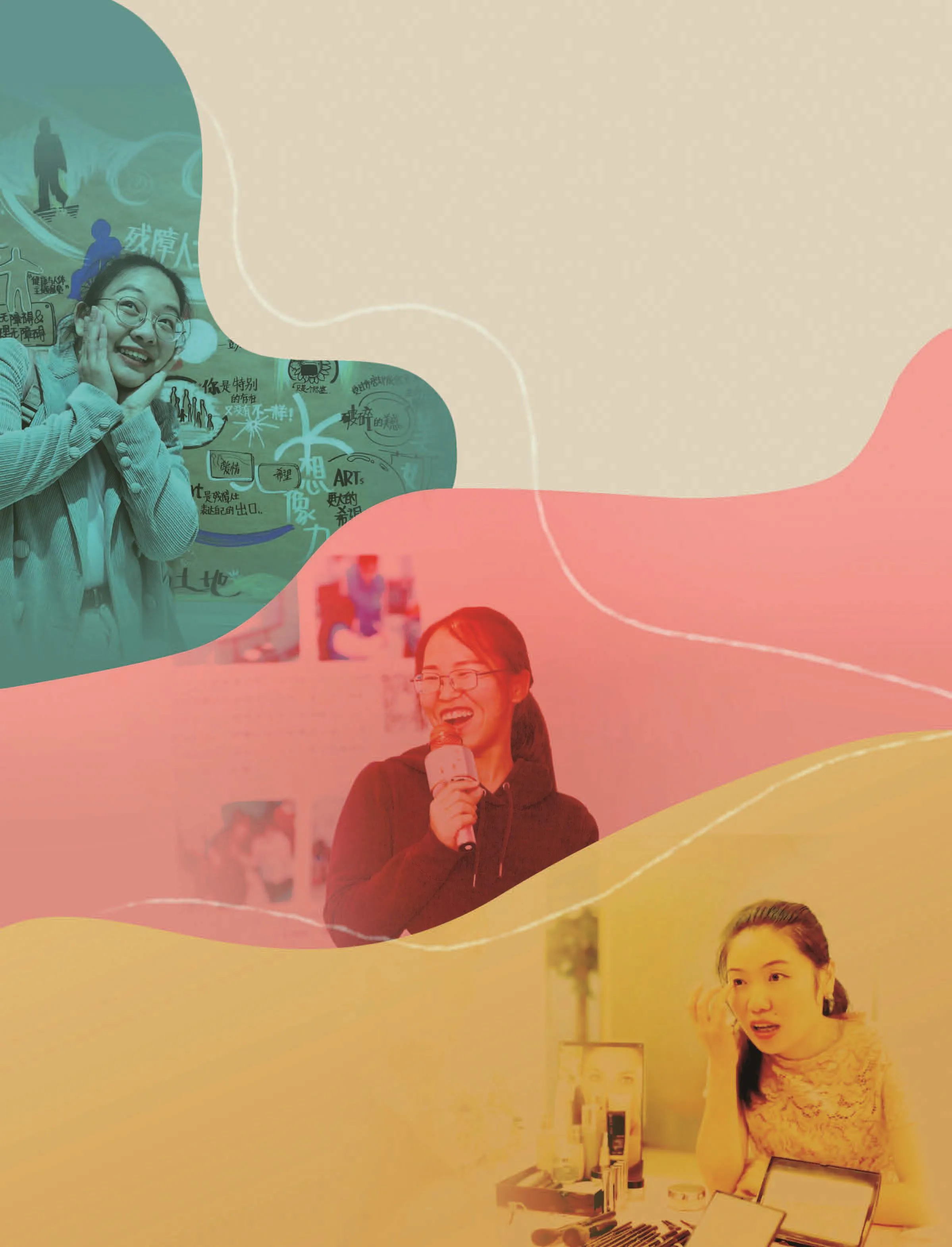Enabling the Movement
BY PEIXUAN XIE (謝佩璇)

Feminists with disabilities speak about growing up, building a life, and advocacy in the face of physical and social barriers
三位殘障女性的成長與抗爭Yangyang lost her short life to starvation,abuse, and torture for allegedly being infertile, the perpetrators—her husband and in-laws—were sentenced to just two to three years in prison with probation by their municipal court in Shandong province.
Born with slight intellectual impairments that made it “extra difficult” for her to find a husband in rural Shandong, Fang had married Zhang Bing, a man from a neighboring village 11 years her senior, in an arranged marriage in 2016.Her story echoed that of her mother, an “intellectually troubled”woman whom Fang’s uncle picked up at a train station and brought home as a bride for Fang’s father—likely a victim of trafficking.
Sexual, physical, and emotional violence are a reality for disabled women in China, who often lack economic autonomy, self-defense ability, and awareness of danger.Women and girls with disabilities face greater danger of domestic violence and have lower access to sexual and reproductive health services, with girls living with multiple disabilities being the most vulnerable, according to a national-level analysis of China in 2019 by both the UN’s Population Fund and Handicap International.
China has made some progress in disability inclusion planning and services, but disabled women,amounting to 48 percent of China’s 100 million people with disabilities,remain at the bottom of lawmakers’priorities.There are currently no national laws dedicated to women with disabilities, or specific protocols to the dangers confronting them, such as being confined, trafficked, and abused.
The neglect from government departments responsible for women and the disabled creates a double burden borne by disabled women due to both their gender and disability.They also create a vacuum of accountability, when the unique needs of women with disabilities are both overlooked by the “women’s matters”agenda and de-prioritized from disability issues.
In society, women with disabilities are also sexualized in the name of security.Whereas disabled men are encouraged to “go out” and break barriers, disabled women are expected to stay at home, as “the outside world is too dangerous for them,” says Ma Wei, former project officer at One Plus One Disability Group (OPO), China’s biggest nonprofit organization for disabilities.Marriage and child-rearing are promoted as the highest aspirations for disabled girls, who are often told by their families that they have less to bring to a marriage than an ablebodied woman.
The reproductive expectations sometimes go too far, like in the case of Fang’s mother—by no means an isolated incident of abduction,trafficking, and rape of a disabled woman.Paradoxically, disabled women are also asexualized,experiencing a general lack of sex education in both family and school settings, and are consequently at greater risk of sexual exploitation.
The lived experiences of being female and disabled deserve to be heard, especially from the disabled women themselves.Xiao Jia, Tong Can, and Peng Yujiao, three young women with disabilities working toward disability inclusion in China, spoke to TWOC about their“everyday” experiences and work toward inclusion in the world of gendered disability in China.

Peng Yujiao (second from left) being filmed for a video themed around art and disability at the Today Art Museum in Beijing

